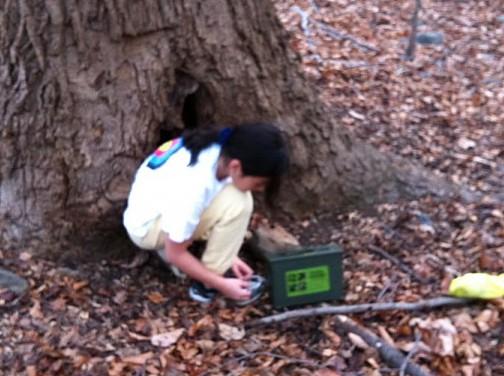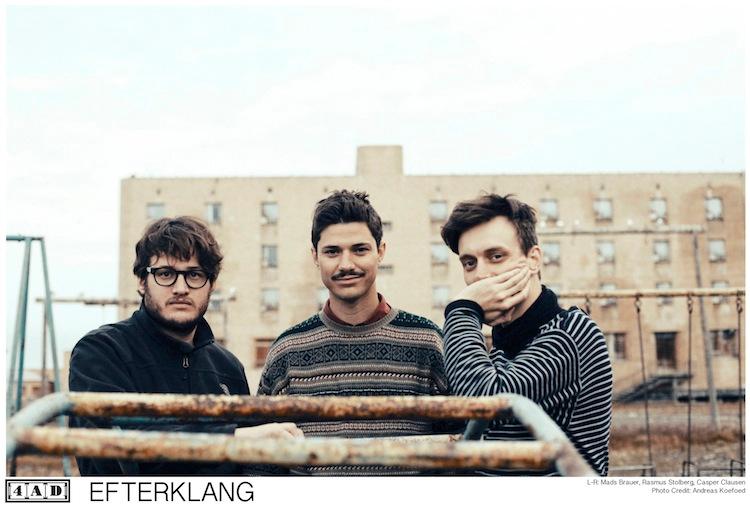It is difficult to classify the Danish group Efterklang. Chamber pop has been used to describe their semi-orchestral, other-worldly sound. Their name perhaps provides another clue, translating as reverberation, the sound that resonates in the room. But in Danish it is also sometimes referred to as remembrance as well, like an echo from the past, and these themes are reflected in their stunning fourth album Piramida.
On the eve of the album release, we caught up with singer Casper Clausen en route to performances of the album in Ireland. Earlier in the year the World premiere of the Piramida concerts took place at the Sydney Opera House with the Sydney Symphony orchestra. It was a completely sold out show and the band were clearly delighted with the audience response.
“It was Like a dream”, says Clausen, “it was the first time we played Piramida in public. It was exciting to see if it would fly or fall to the ground. We came out with this really ecstatic feeling, with standing ovations and such a good vibe in the room. The material had proved itself in the show somehow. It was a really wonderful evening.”
He goes on to explain how working with classical orchestras involves so much more preparation than if they just play as a trio, particularly as they perform with different orchestras around the world.
“It’s a different feeling with an orchestra compared to working alone. There’s a lot of practical things around playing with an orchestra that makes it a different beast. A lot more thought goes into pre-production, working intensively with two arrangers. It’s not just Efterklang and an orchestra, but really about the whole thing being Efterklang. We really want to integrate the orchestra.”
The album itself is a highly unusual concept that started when in 2010 the band saw photos of an abandoned mining community called Piramida in Spitsbergen, a remote island situated between Norway and the North Pole.
“We were immediately intrigued by this fascinating place - great nature, huge mountains, glaciers and then this Russian coal mine city sitting there like a ghost town,” explains Clausen. He also found it a frightening and overwhelming environment where one feels very small. They remembered the photos in 2011 when they were thinking about what to do on the next album.
“We had this idea kind of flying around - taking a place as a location, going somewhere starting the album as a location. This place fitted so well. The idea partly sprang from being fascinated with the place. It looked so adventurous. On a map it looked so far away. It felt like a place we could get so many interesting things from just being there.
“In making an album we would normally have a few old songs lying around and never be quite sure where we started from. In this case we wanted to go to Piramida before we started making any songs. A trip for the three of us all having the same starting point together – this was a completely new approach for us.”
During their visit to Piramida they recorded hundreds of sounds from abandoned objects they found there like fuel tanks, glass objects and oil drums.
“We started bringing microphones and audio equipment and went with our ears. We had seen maps and photos of the place and had a few descriptions. For instance we knew that the world’s northernmost grand piano was up standing there, and were quite intrigued at the idea of playing that one of course. We had a few ideas of things standing around. Apart from that we were just walking around town finding different locations where we could record, running around with sticks and mallets and the microphone. Sometimes we would just pick up single sounds and other times sequences.
“The idea at the beginning was not necessarily to document this place, but to use it as a trampoline to somewhere else. To take that material and let it be the framework from where we started and where we were going in a way.”
The recordings were taken back to their current home in Berlin. Band member Mads Brauer then spent two months sifting through selections of the sounds, many of which can be heard on the album in one form or another.
“With his software Mads turned it into synthesiser and rhythmic patterns. Some of them are clearer than others. There’s some sounds you hear raw as they were, but there’s a lot of sounds that are synthesised”, Clausen says.
“Mads would send out small sketches to Rasmus (the band’s bass player) and I. I would start working on the song structure and putting them together. From there they turned into songs.” He goes on to point out that they valued the song structures and melodies, vocal lines and a lot of the things one connects with music that is recognisable to many people.
They were searching for an atmosphere from Piramida, and that is evident on the recording. Dreamy and sometimes mournful, but never avant garde or difficult to listen to. In fact it is muti-textured, accessible and very much in tune with contemporary pop sensibilities.
Clausen explains that for quite some time in the recording of his vocals there were not really any lyrics, but then themes started to emerge.
“I was singing more phrasing and melodies on top - but after a little while, half a year after we came back – I was studying what kind of nonsense I was singing about. A lot of it had a theme of lonesomeness. I had just been through a break up. For a long time I had some issues with myself and being in a relationship. Suddenly there was this theme shaping up that connected very well with this ghost town.
“Some kind of connection I had with the relationship with a different person and this ghost town still standing there. Some indication of past, something that used to be there, and there’s no life in it any more but you can still go and visit it and think about it.”
Clausen added, “so I would say a lot of the lyrics are circulating around this idea of being alone and not necessarily knowing if you’re supposed to be with someone or you are meant to be alone. There’s definitely a lot of love and doubt and love and all these themes in the lyrics, in different kinds of ways. It’s never exactly clear, but more as an overall theme I think.”
Starting on 23 October, Efterklang will perform the Piramida concerts at various venues in the UK with the Northern Sinfonia orchestra.
The Epoch Times publishes in 35 countries and in 19 languages. Subscribe to our e-newsletter.







